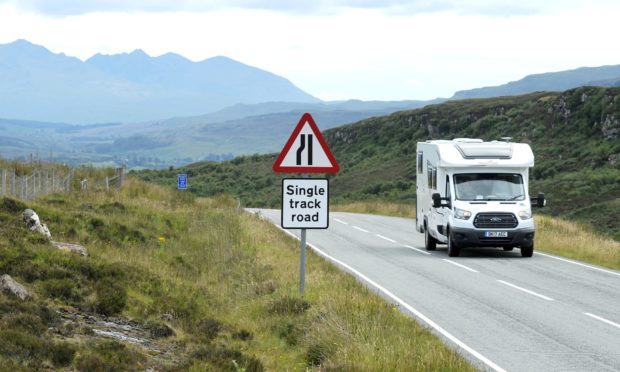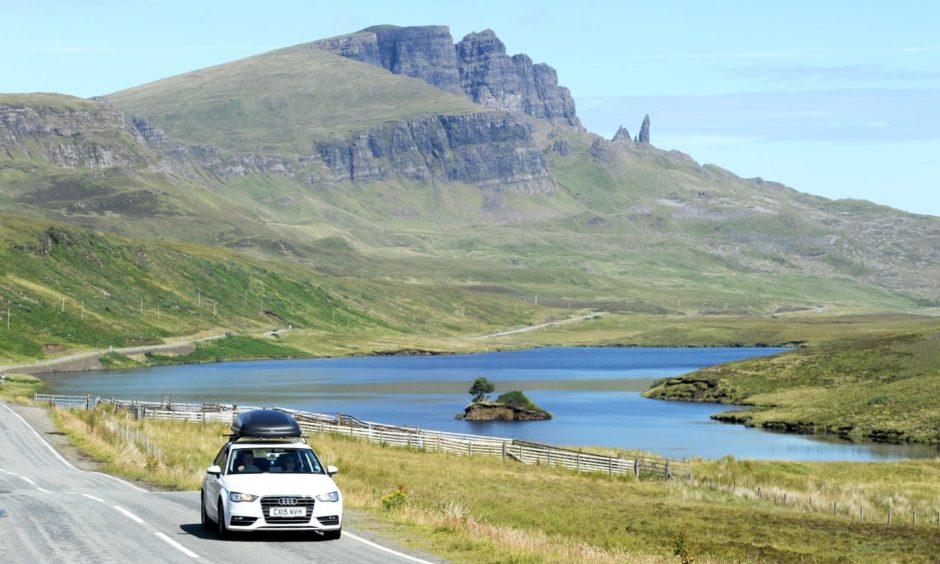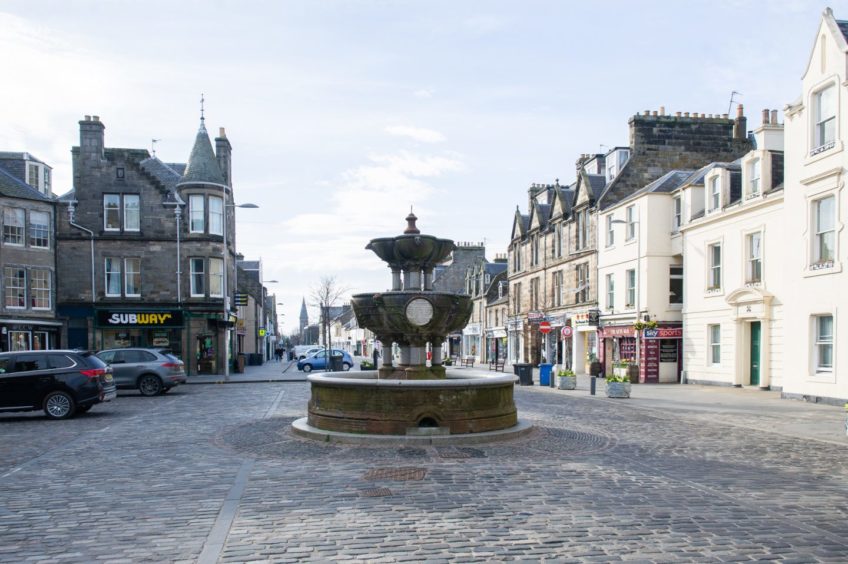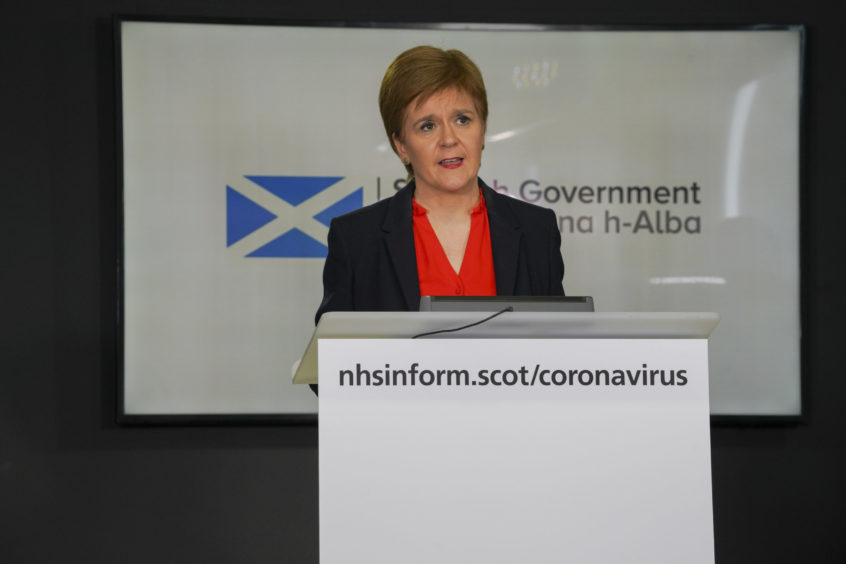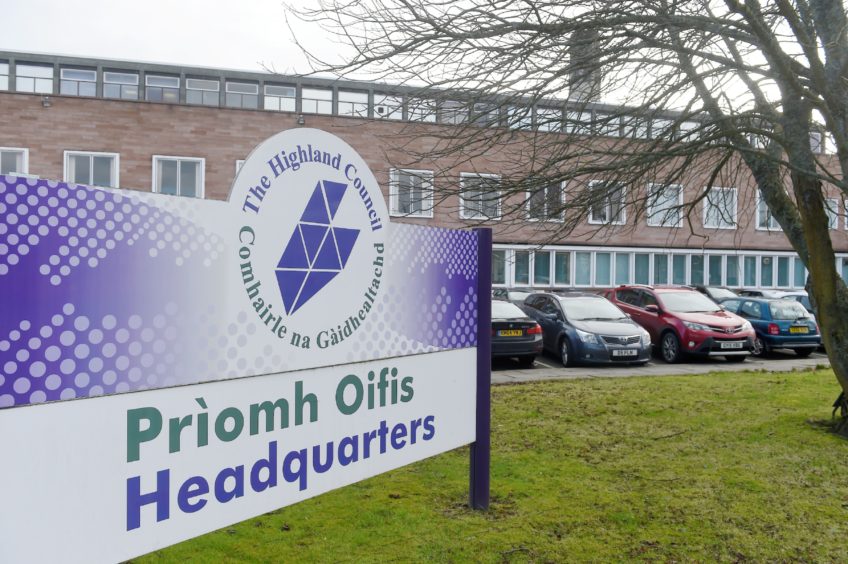Most self-catering businesses in rural areas now fear for the future as they continue to wait for vital cash grants to keep them afloat.
Only 37% of self-catering businesses have had financial support applications approved, according to a new survey of more than 600 accommodation providers in Scotland.
And two-thirds said they were pessimistic or very pessimistic about the prospects of their business as a result of the coronavirus crisis.
The study, carried out in the last few days by the Association of Scotland’s Self-Caterers (ASSC), found 49% of self-caterers were still waiting for grants to be processed.
Although the number of approvals had increased significantly since a previous survey, the organisation described the ongoing issues as “deeply concerning”, as it urged the Scottish Government to act to prevent “irreversible” damage in rural communities.
A number of those surveyed reported that the frustrations were contributing to mental health problems.
I felt utterly terrified of both the virus and the financial implications. I refused to leave the house, cried pretty much constantly and on occasion had what I can only describe as hysterical panic attacks.”
First Minister Nicola Sturgeon responded on Wednesday by vowing to work with councils to streamline the process, if possible.
Tourism businesses, which are a key component of the rural economy, have been among the hardest hit by the coronavirus crisis.
Trade has ground to a halt during the lockdown, and analysts have predicted it could take “several years” for the industry to recover.
A Scottish Government coronavirus relief scheme was previously amended to include self-catering businesses, after their initial exclusion provoked a backlash.
We are very disappointed to see that Self Catering properties are excluded from these grants and we are raising this as a matter of urgency with the Scottish Government.
— MoraySpeyside (@MoraySpeyside) March 24, 2020
What the hell!! Grants for Business Support due to Coronavirus are non-eligible to self-catering properties – some of the hardest hit businesses yet hotels, guest houses, campsites are??
— Lochbuie Flora (@lochbuie_larder) March 24, 2020
Self-catering also eligible for £10k & £25k grants if genuine biz-ie its a primary source of income for the ratepayer rather than an empty property (eg a 1/3 of total income & let out 140 days.) That includes rural biz diversifying into self-catering. https://t.co/Y0eQJbhdMw /3
— Kate Forbes MSP (@KateForbesMSP) April 3, 2020
Such businesses can now apply to their local council for a one-off grant of £10,000 through the Small Business Bonus Scheme and Rural Relief, while firms with a rateable value of between £18,001 and £51,000 can apply for a one-off grant of £25,000.
However, concerns have been raised about the differing ways councils are interpreting the eligibility criteria, which includes proving the accommodation is a primary source of income, and that it was let out for 140 days in the last financial year.
Earlier this month an ASSC survey found just 4% of self-caterers that had applied for the grants had won approval, and a new study of 629 accommodation providers has now revealed that the proportion has risen to 37%.
lucky them, i submitted my application for the grant on the 25th March and still waiting, not had a peep from fife council!!
— john (@john75248716) April 23, 2020
The new survey showed a further 49% had applications that remained outstanding, while 4% had been rejected and the rest had not yet applied, some due to the apparent confusion relating to the criteria.
Highland had the highest number of survey respondents, at 163, followed by 79 from Argyll and Bute, 57 from Edinburgh, 49 from Perth and Kinross, 35 in the Western Isles and 32 in Fife.
A further 25 were in Aberdeenshire, as well as 18 in Moray and 11 in Orkney.
About two-thirds of the businesses surveyed said they were pessimistic or very pessimistic about the future as a result of the pandemic, while 5% of respondents reported suffering new symptoms related to their mental health in recent weeks, and 28% were experiencing mild anxiety or depression symptoms.
One unnamed respondent described being “utterly terrified of both the virus and the financial implications”, to such an extent that they “refused to leave the house, cried pretty much constantly and on occasion had what I can only describe as hysterical panic attacks”.
Another said: “I am feeling a mixture of angry and upset, primarily due to the injustice of a system that discriminates Scottish self-catering businesses from other parts of the UK for no clear or rational reason.”
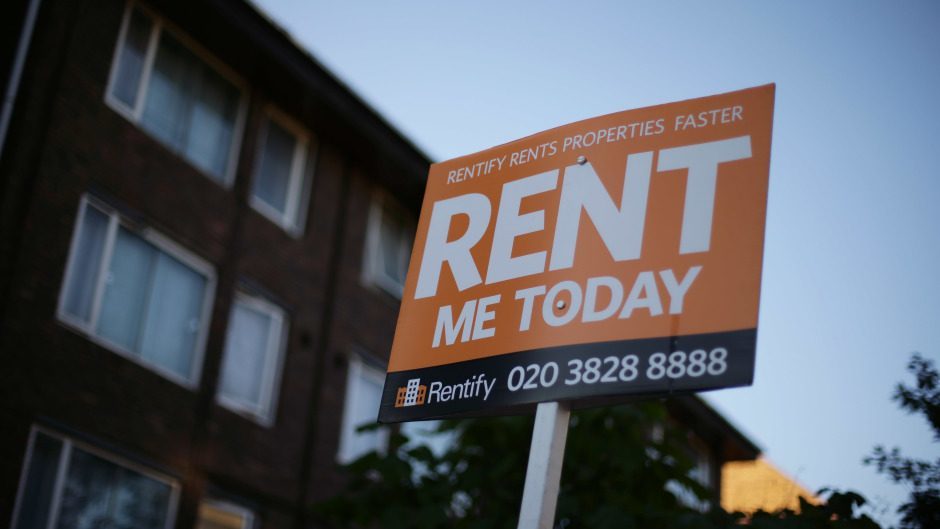
ASSC chief executive Fiona Campbell said: “The results of this survey are deeply concerning and demonstrate that the short-term rental sector is in dire need of support and decisive action from government.
“That 63% of operators in our sector still have not received the support that they are entitled to is indicative of just how many livelihoods are being jeopardised by government dithering and inaction – this simply cannot go on.
“Given that the traditional self-catering sector is worth £723 million per year to the Scottish economy, failing to support it will have serious implications for economic recovery, our vital tourism industry, and the mental health of our operators and their families.
“Self-catering in Scotland needs government to step up now, if there is much more delay the consequences may be irreversible.”
First Minister Nicola Sturgeon said on Tuesday that, as of April 21, a total of 33,176 business grants had been awarded, amounting to more than £388m of support.
We’ll seek to, where we can, simplify them as we go, but the focus and the priority has been getting this money to businesses as quickly as possible, and we will continue to work with councils to do that.”
Nicola Sturgeon
Asked about the latest ASSC survey at the daily coronavirus briefing on Wednesday, she said: “You’re seeing grants being processed and money going to businesses every day now.
“I gave a figure in parliament yesterday, the most up-to-date figure.
“The finance secretary and her officials are in close contact with councils to make sure that process is as quick and as streamlined as possible.
“These systems have been put in place very quickly.
“We’ll seek to, where we can, simplify them as we go, but the focus and the priority has been getting this money to businesses as quickly as possible, and we will continue to work with councils to do that.”
A glitch in Highland Council’s computer system led to a delay in the processing of some business support grants.
The local authority’s IT system initially struggled to cope with a huge rise in staff working from home due to the coronavirus crisis.
A Highland Council spokesman said: “The Highland Council has received nearly 5,000 applicants in the first month since the small business grant scheme was introduced.
“Setting up a new system for dealing with these grants has been and continues to be a logistical challenge.
“Following the Covid-19 lockdown, the vast majority of council staff, including many of whom are part of the business grants response are now working from home.
“Initially, there were, understandingly, a number of IT challenges to be addressed given the huge increase in the number of people wishing to access the council’s network remotely.
“These have, however, been addressed and the council is making rapid progress, with the small business grants now being paid at a rate of nearly 1,400 per week with overall payments exceeding £27m.
“One of the biggest challenges that remains is dealing with the high number of incomplete applications, by working with the applicants to ensure additional information is provided.
“We understand this is a difficult time, and are doing everything we can to ensure payment as soon as possible.”
